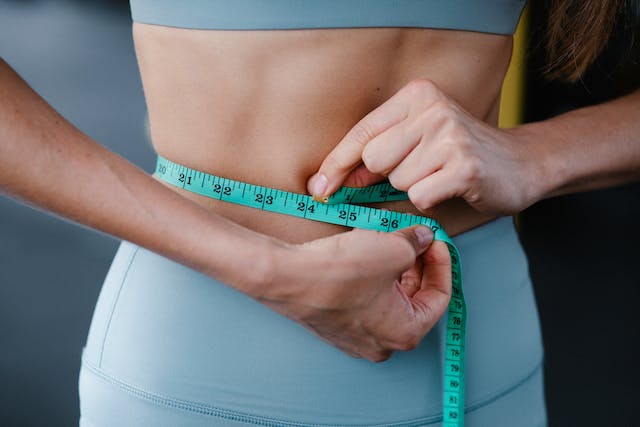
We’ve all been there – standing in front of the mirror, wondering what the secret formula is to shed those stubborn pounds. And inevitably, the primary factors that cross our minds are diet and exercise. But really, which one is actually more important? Let’s take a closer look and explore this long-standing question: Is it what you eat or how much you sweat that matters most?
A Peek into the Caloric Universe
Keep in mind that every pound we gain or lose is fundamentally tied to this equation:
Energy Storage = Energy Intake – Energy Expenditure
Your body stores excess calories as fat when you consume more calories than it needs. Conversely, when you burn more calories than you consume, voila! You’re on the road to weight loss.

Diet: More than Just a Plate
Let’s say you just finished an intense 1-hour workout. You’re feeling accomplished and decided to reward yourself with a delicious dessert. But hold on! Did you know that one slice of cheesecake may have more calories than you just burned? That’s the power (and potential pitfalls) of diet!
Pros of focusing on diet:
- Controlled Intake: It’s often easier to refrain from consuming 500 calories than to burn them off. Therefore, by practicing controlled intake, you can precisely control how many calories you consume. It’s crucial for weight loss or maintenance because you won’t be eating more than your body needs.
- Broad Choices: There’re plenty of different diets out there, such as paleo, keto, or vegetarian, so you can probably find one that fits your lifestyle
- Metabolic Boosts: Even when you’re not exercising, some foods can accelerate your metabolism and help you burn calories faster. Protei-rich foods, spicy foods, green tea, and oolong tea are great examples.
Cons of focusing on diet:
- Social and Emotional Impact: Dieting can often feel lonely and can affect your emotional well-being since it may limit your participation in social food events. Plus, there’s the emotional side. Not only is food a source of energy, but it also brings comfort, celebration, and tradition. Restrictive diets can sometimes lead to feelings of deprivation and can trigger a negative relationship with food.
- Potential Nutrient Deficiency: Restricting or eliminating dietary types may result in a deficiency of vital nutrients, which can negatively affect overall health and bodily functions.
- Sustainability Issues: How often have we heard of the story of the diet that ends as soon as it begins? In reality, it can be challenging to stick to extreme dietary restrictions over the long haul. They can lead to cycles of yo-yo dieting – swinging from strict adherence to a diet to completely giving it up, which can be discouraging and unhealthy.

Exercise: The Sweat Equity
Exercising isn’t just about losing weight, it’s also about improving overall health – stronger muscles, better cardiovascular health, and enhanced mood (hello endorphins!).
Pros of focusing on exercise:
- Muscle Gain: Muscle gain from exercise not only improves the physical look and strength but also raises the resting metabolic rate. This increases calorie expenditure during the day and promotes long-term metabolic health. Plus, more muscle mass also improves joint health, balance and coordination, and overall body mechanics.
- Mental Boost: Regular exercise has been shown to have a significant positive impact on mental health. It does so by producing endorphins, lowering anxiety and depression symptoms, boosting mood, and improving cognitive function.
- Variety: With numerous forms of physical activities available, the diversity allows individuals to keep their workouts interesting and tailor them to personal preferences, promoting long-term commitment.
Cons of focusing on exercise:
- Time-consuming: It can be difficult to fit regular exercise into a hectic schedule since it requires significant time commitment, for both the activity itself and preparation and recovery.
- Risk of Overtraining: Excessive physical exercise without sufficient rest can result in overtraining syndrome. This may cause muscle fatigue, decreased performance, and increased risk of injury, which can derail fitness goals and overall health.

The Verdict
While both exercise and diet are vital factors for weight loss, many experts believe that diet has a significantly bigger influence. However, it’s not optimal to focus solely on diet without any physical activity since this might result in muscle loss.
My take? A balanced approach is best. Embrace an active lifestyle and a nutritious diet. This duo not only ensures weight loss but also enhances overall health, making you feel amazing inside and out.
Remember: It’s not merely about losing weight, it’s about gaining health. Stay motivated, and keep rocking your fitness journey!
